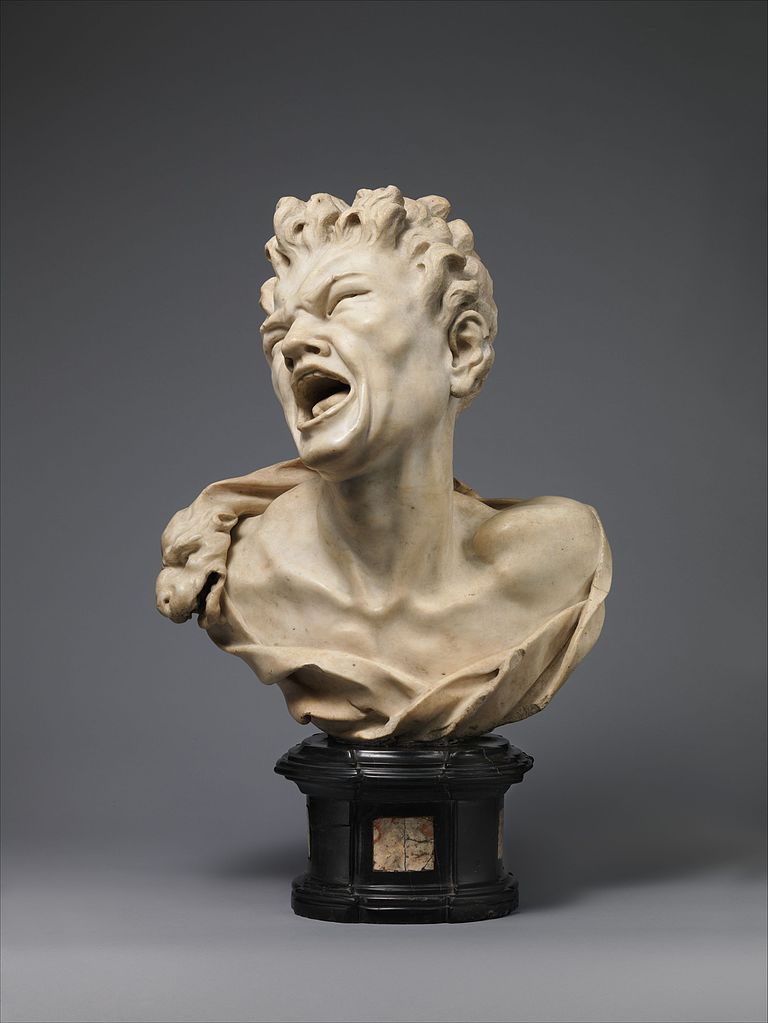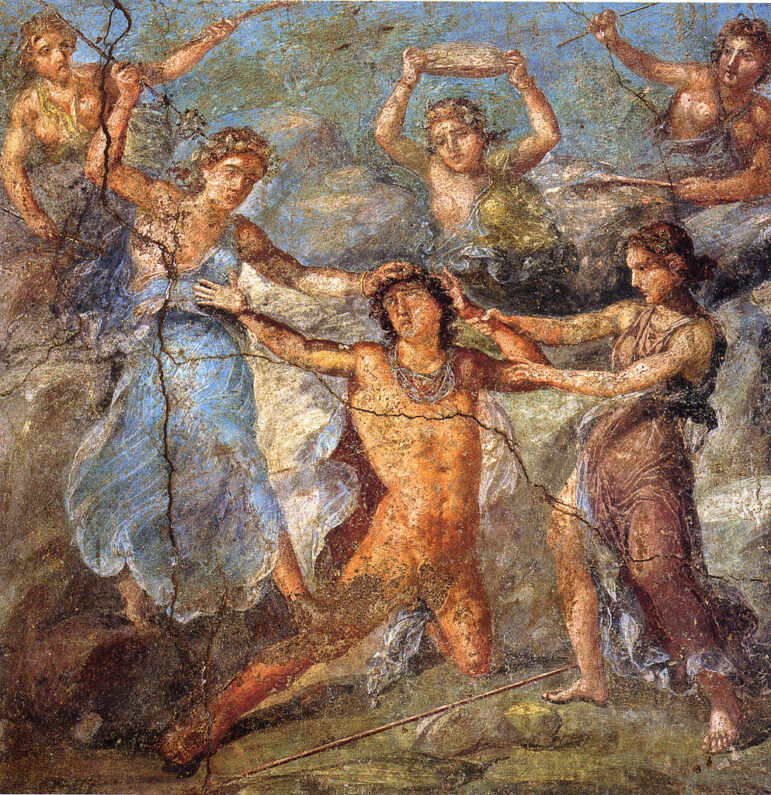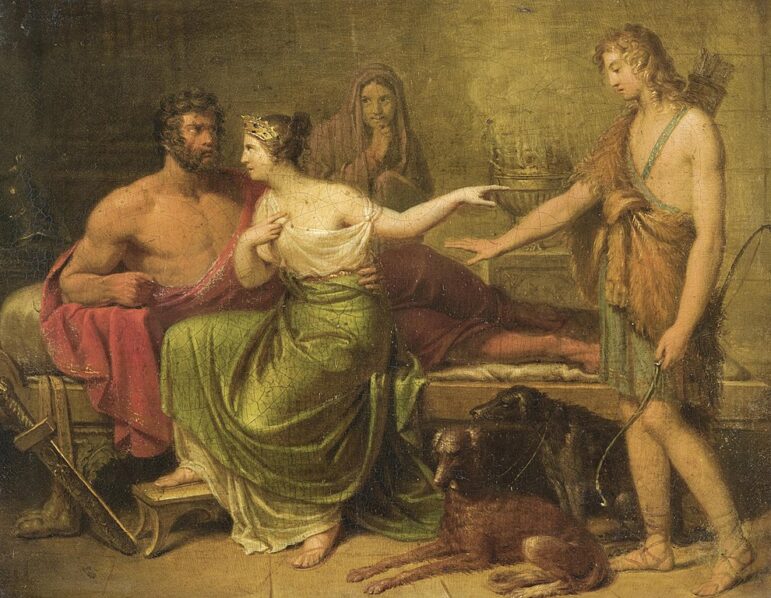
There’s a memory I have of myself as a child, the kind so old and scuffed that it’s almost impossible to make out these days. Maybe it happened just this way, or maybe revisiting it so often has worn it away, blurring lines until the image is unrecognizable to anyone but me. I come back to it again and again, examining it until the colors wear off on my hands and stain everything I touch.
The memory is this. I am young, not yet in middle school, trying to make sense of the world around me. “What does ‘the fear of God’ mean?” I ask. “If God is love – why does he want us to be afraid of him?”
My parents in this memory are formless and large, a suggestion of location and concern more than people. I’m not sure which of them answered me. “It doesn’t actually mean fear, like we’d think of it. It means respect. Knowing He’s important.”
I sat with that, trying to make sense of it. “Do you want me to fear you?”
“No,” my parents said – and then the memory fades, whatever explanation they offered blurred by time and confusion.
I knew that words could shift and change, I understood that context was important – but I didn’t believe them. My parents had never hit me, but when people talked about the fear of God in movies, they did it with a switch or a paddle in one hand, a wild light in their eyes. “I’ll put the fear of God into you” was a phrase synonymous with violence, and whatever it meant about respect was based in a fear I understood much better.
So, I was afraid – and the church gave me many things to feed that fear. On the day I was baptized, I cried in relief as the pending threat of Hell’s eternal corporal punishment lightened for a moment. But the fear did not ease. I was afraid of breaking any of the rules I had been taught about how I was supposed to feel, who I was supposed to be, lest I be cast forever out of the Christian god’s love. I was afraid, when those rules were inevitably broken, that my community would find out I was a damned sinner and remove their love from me as well. I was afraid that every kind of love I was given was conditional – and most of all, I was afraid of the god I had been told was the source of all of that love.
Leaving the church was more a culmination of slow avoidance than a decision. I drew back as a way to escape from the fear and I huddled in my solitude for a long time. The fear held me tight and kept me immobile, convinced that the painful process of earning love would destroy me. It took years to find something that I wanted to move toward, again.
I don’t know if I can trust anything unless I’m afraid of it, now. What’s more, I’m not sure I want to. Fear is reflexive, as unconscious as breathing, my body’s reaction to everything from solitude to a thrown shoe. There are traumas in my life that pool in my hips and feed the roots of me, and I do not know how to love things that do not, in some way, make me afraid.

Balthasar Permoser. Marsyas. Marble on a black marble socle inlaid with light marble panels, c. 1680–85 [public domain]
I know that this is part of why I find the gods that fill my life now so restful. They are terrifying. The kindest of them is streaked with blood and prone to fits of violence. Their characters are complicated and often petty, their stories filled with the sorts of vengeance that humans can only feint at. Through each of them there runs a vein so inhuman that it hardly registers as cruelty. Even the ones I trust the most, the ones I have given my life to, have moods and moments as deadly as a volcano, as unkind as a hunting hawk.
Which is why I trust them. At least they’re honest about it.
This isn’t to say that I go out in search of deities known for their spooky sides – kind of the opposite. The spirits I work with tend to be con artists and everymen, neither exceptionally important in their pantheons nor, in my understandings of them, particularly edgy. Odin and I parted ways a couple of years ago specifically because of his terrible side, Ygg. I have yet to find a death deity whose energy doesn’t set me right off. There is a line in my experience of spirits where the danger starts to feel unsafe and, past that point, I make my excuses and head for the nearest door.
Except, that is, when it comes to the Hellenics.
For a long time, I had decided that working with them was too dangerous. I knew about Marsyas, flayed alive for challenging Apollo. I knew about Io, Semele, Helen – their lives ruined simply for catching someone’s attention. I knew about the hundreds of men who died following Odysseus home through the shifting favors of the gods. Reassurances that the myths were stories, not religious texts, carried only so much weight – because what could be more important than a story? I felt like I could trust Hermes, Friend of Man, but his family – well, best to give them a respectful distance and mind my own business.
I will give credit for breaking this embargo to Dionysos, and he might even deserve it. When I think back on what changed my mind, I remember him – teeth stained red, eyes hidden, swaying.
“What should I do to get through this?” I asked him, the Ever-Arriving, and he made a noise that was either a snarl or a laugh.
“You’ve come to the wrong person if you want to stay in one piece,” he said. I remembered it when I saw his hands in what happened next, through the rending and the reassembling. I had not come to him – but he was unavoidable, and my life reshaped around him. I remembered it as I put him on my altar.
With Hermes and Dionysos already present, Apollo followed, his presence every bit the agonizing blaze of the sun. Hera came next, unknowably ancient, a queen of blood and caverns. Gray-eyed Athena, rational in ways that left me feeling shaken and small, stood at the corners of my practice and waited for me to show some sign that I was willing to work. In time I started to reach out on my own, feeling the limits of what I could stand.
They were always more than I felt that I could handle. I never felt safe – but slowly I started to reach out further and build something worthwhile, something that felt like respect.

Pentheus being torn by maenads. Roman fresco from the northern wall of the triclinium in the Casa dei Vettii (VI 15,1) in Pompeii. [public domain]
Still, try as I might, there were some Olympians who filled me with the same kind of fear as a car crash or an explosion. No amount of rationality, no pep talks or research could get me to reach out. The stakes seemed too high. Their favor seemed hard to get and impossible to keep and their fury was too terrible to contemplate. When they came up I was polite – but I did the metaphysical equivalent of holding my breath, hoping they would pass by without noticing me.
Which is why it was astounding when Aphrodite followed me home. It was as straightforward as that. One day I had no items for her in my house – the next day she had an altar all to herself in pride of place. I couldn’t make sense of it. The altar came together, as they sometimes do, as if every item had been waiting for just this purpose. It was a delightful thing, the kind of magic that thrummed with a sense of being right, beautiful in form and function. I looked at it, excited – and only then remembered just how scared I was of her.
I knew exactly why she scared me. Her family might threaten death or dismemberment, madness and mutilation, but Aphrodite controlled love, and I was far more afraid of that being taken away. I had managed to build a life filled with love without honoring her. It seemed like I had everything to lose by reaching out. The stories of her anger were filled with love gone wrong, doubled back on itself, obsessive and treacherous. I knew what it was like to have a god withhold love from me. I was terrified of having it happen again.
It didn’t seem to make a difference. She was here, now, and as worried as I was I couldn’t bear to take the altar down. So I cleaned myself, as I tend to when speaking with her family, and offered some Frankincense, introduced myself.
“Do you think,” she asked, amused and welcoming, “that I haven’t been here this whole time?”
It was enough, for the moment. It was enough to feel familiar – not safe, but within the bounds of what I could handle. There were other things to worry about, and the altar was lovely. I left it alone.

Hippolytus, Phaedra and Theseus from a German school, 18th century [public domain]
Perhaps I ignored it. My schedule of tending to the altars is erratic and, often, very casual. I do not believe in pomp and I am often lax about ceremony – and she scared me. Perhaps I let it go a while too long without changing the water and burning something sweet. Perhaps she got angry, after all.
That was certainly the fear. It lent an edge to the heartbreak when it came, made it even more bitter as I swallowed. There were a dozen, a hundred reasons for what happened, and yet –
“Lady,” I asked, screwing up my courage. “Did I – If I need to make amends-”
I expected anger, dismissal, disappointment. I did not expect gentleness. “This is my favor,” she explained, gesturing towards the maelstrom. “This is a part of love. And you will love better, after this.” She put a hand on either of my arms, bracing me up. “If I were not here, would you be able to feel this much?”
“No,” I said. “But I-”
“We are all the parts of ourselves,” she interrupted. “I am the act of love and the end of it.” She caught my eyes, and it held me tighter than her touch did. “You are also every part of you. I’m not leaving.”
I love my gods because of their complications, their dangers and their terrors and the parts they keep most private. The wonder is that, with them, I believe I am loved for the same reasons.
The Wild Hunt is not responsible for links to external content.
To join a conversation on this post:
Visit our The Wild Hunt subreddit! Point your favorite browser to https://www.reddit.com/r/The_Wild_Hunt_News/, then click “JOIN”. Make sure to click the bell, too, to be notified of new articles posted to our subreddit.